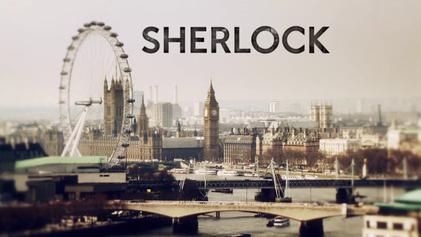BBC's Outcasts
/The BBC has a new show coming out on February 7th by the same people who've produced MI-5, Hustler and Life on Mars, titled Outcasts. The premise is one that reminds me very much several shows, with the seriousness of Battlestar Galactica, the western elements of Firefly and the exploration of the unknown from the novel Coyote. I don't usually get excited over previews and the random plot synopsis, but this time, I'm totally there, all the way through. [youtube=http://www.youtube.com/watch?v=OM_-eFLJkSE]
I've generally been impressed the BBC's track record with shows. Life on Mars is one of my absolute favorites in the speculative fiction genre, at least when it comes to TV, not to mention Ashes to Ashes and the occasional Dr. Who episode and one-off thing that they do. There's been some missed (Torchwood and Primeval, for example), but on the whole, they know how to put together an interesting story, and carry it through with little baggage that U.S. series seem to have.
The story here intrigues me more than most shows:
Time: our future. A fleet of anti-matter transporters departs Earth for a newly discovered, life-supporting planet in a distant galaxy. Those on board have one simple objective: to build a safe new home on this planet: Carpathia. Led by President Tate and his core team of Stella, Cass and Fleur, they took charge and settled here alongside Expeditionaries Mitchell and Jack. Years on and they are settled in the town of Forthaven on Carpathia, they are confident of their ideals and optimistic about the future. They work hard to preserve what they've built on this planet they now call home, having embraced all the challenges that come with forging a new beginning. But while they try to avoid the mistakes made on Earth, inevitably these heroes cannot escape the human pitfalls of love, greed, lust, loss, and a longing for those they've left behind. As they continue to work and live together they come to realise this is no ordinary planet... Mystery lurks around them and threatens their fragile peace. Is there a bigger purpose at work? Gripping, fast-paced and full of surprises, Outcasts features a cast of established actors and dynamic young stars and seeks answer to the critical question: how do you create a new and a better world?
There's some hints to greater things at work here, much as we saw towards the end of Battlestar Galactica, amongst a bit of a background of some of the modern realistic science fiction that's out there. One preview shows a human jawbone fossilized on Carpathia, and it'll be interesting to see what happens there. In the meantime, it appears that this show falls more into the space opera catagory, of which there's been very little of recently.
Space Opera on television has become a very rare thing: Babylon 5, Star Trek, Battlestar Galactica, Firefly, Farscape, and more have all had their runs, while Stargate Universe is still out there for at least ten more episodes. A number of science fiction shows out or about to come out seem to be focused more on Earth: Fallen Skies, coming out this summer, is an alien invasion show, while Fringe deals with alternative universes. Terra Nova has time travel and dinosaurs, The Walking Dead: Zombies. This is without counting the random grouping of superhero shows that have just come out. While there's a glimmer of hope for SGU to continue, Battlestar: Blood and Chrome is set to come out later this year, and there's the hope that Slingers will be picked up for a pilot and become a TV series down the line. Outcasts stands out in a very small field just by virtue of its existence, and from the trailers and pilot episode, I've really liked what I've seen with it.
I miss the shows set off on far away worlds, the visuals of a spaceship gliding through space and the various problems that the characters find themselves in. Stargate Universe was a welcome addition for that reason, and a number of the modern and unconventional shows such as SGU, Battlestar Galactica, and Firefly had a great take on how life in outer space would work, and various problems that people out find themselves in and solve.
So, here's hoping that Outcasts will hold up to the initial impressions and previews.


